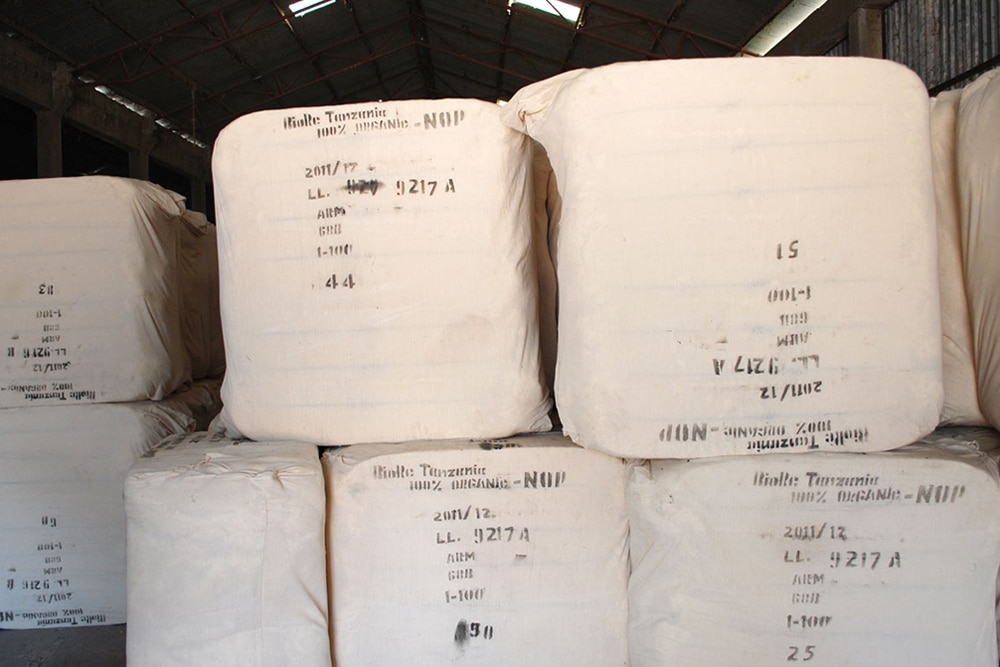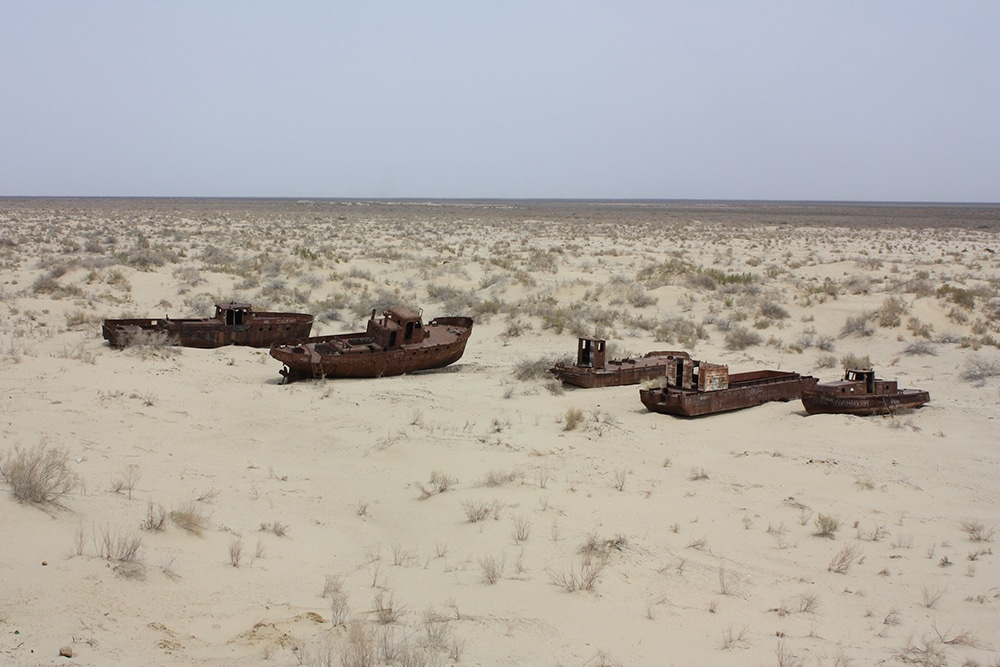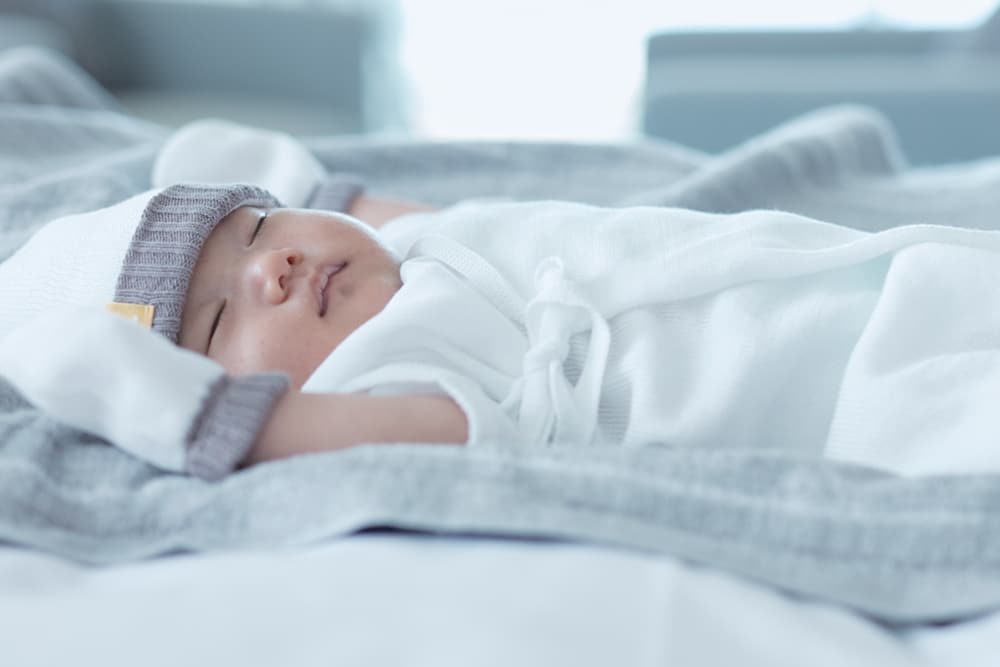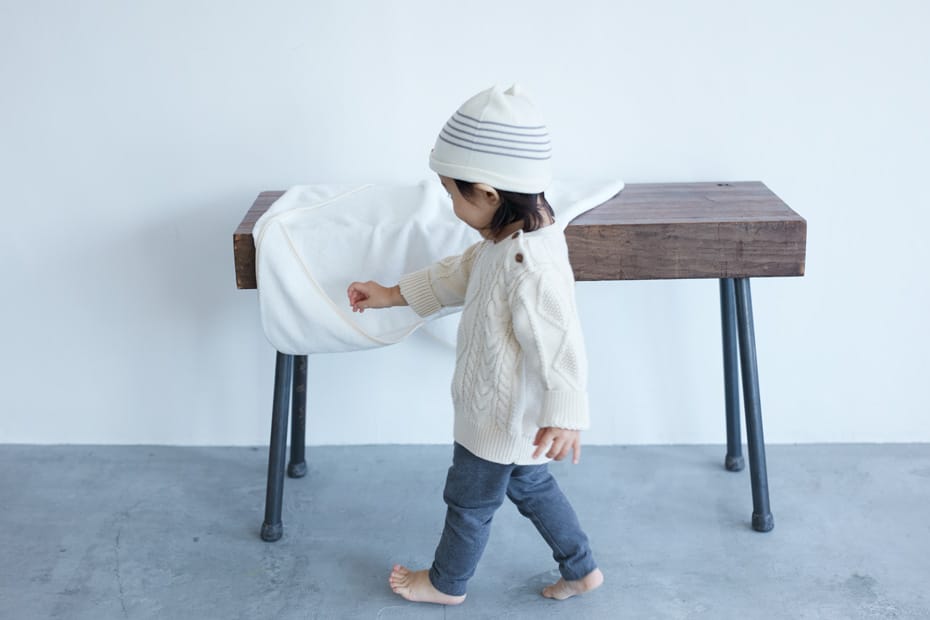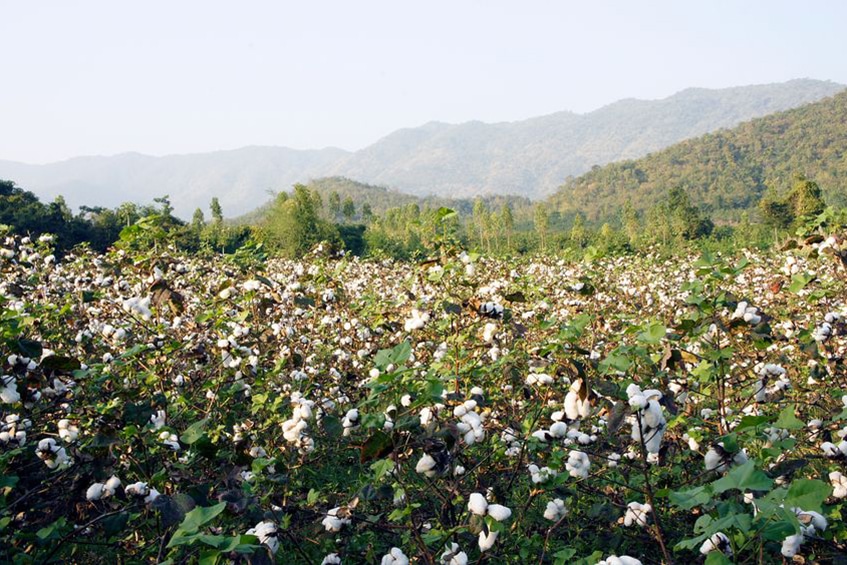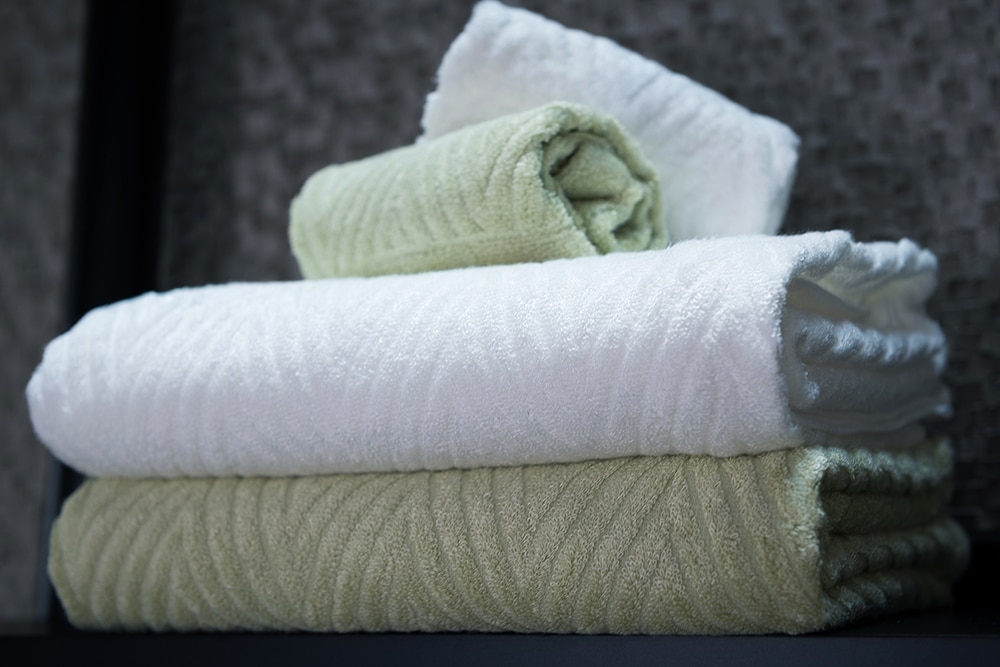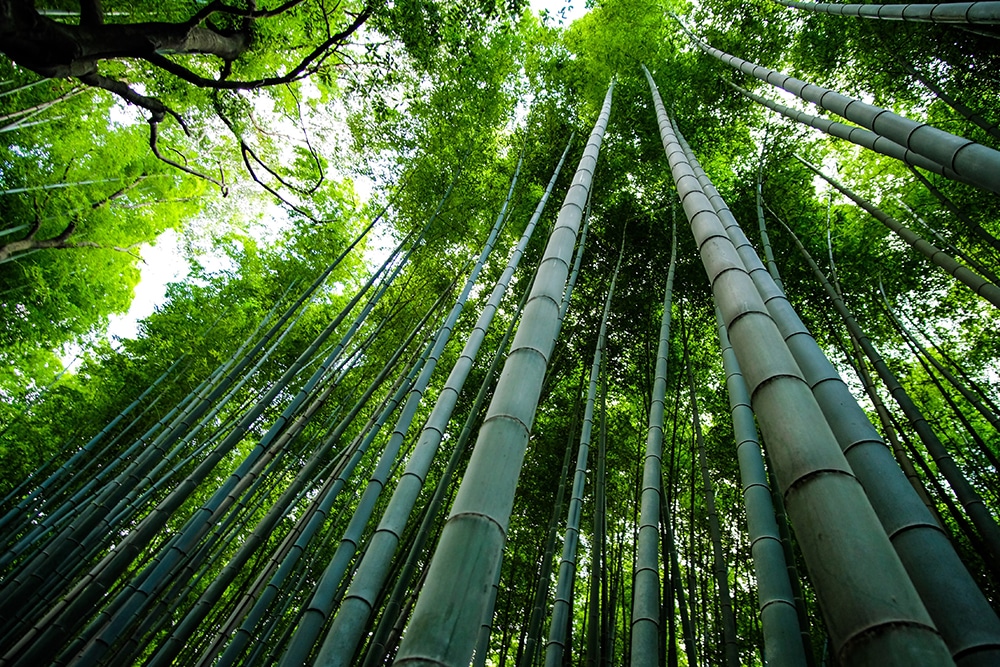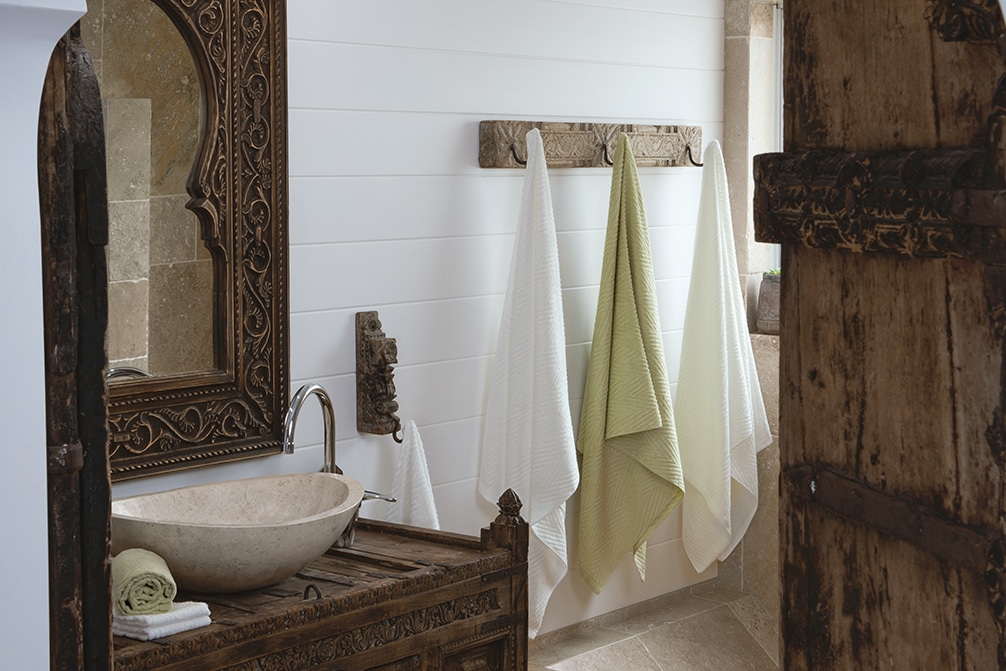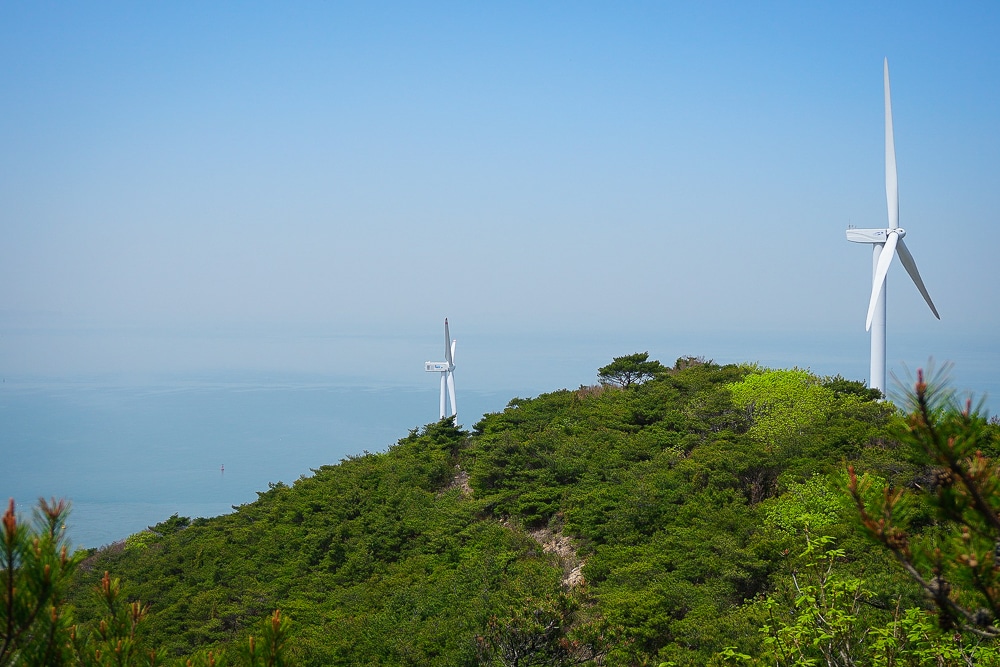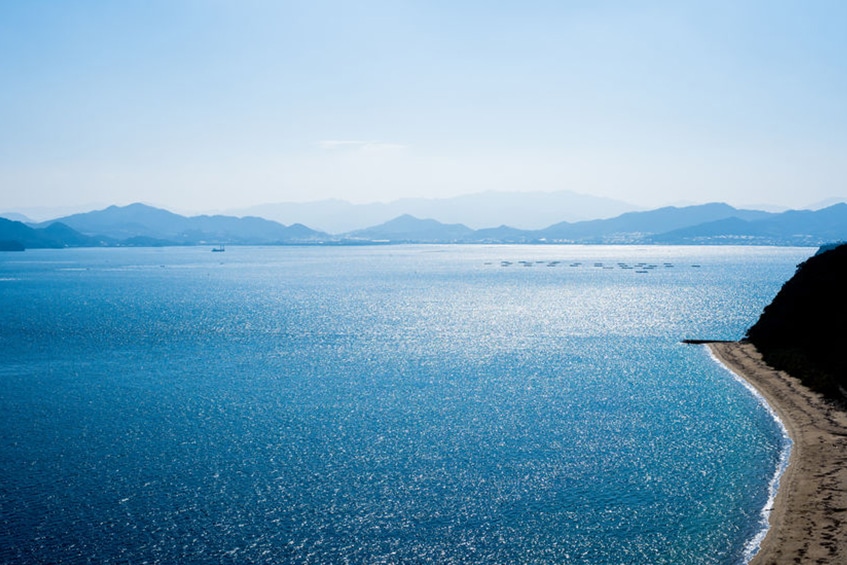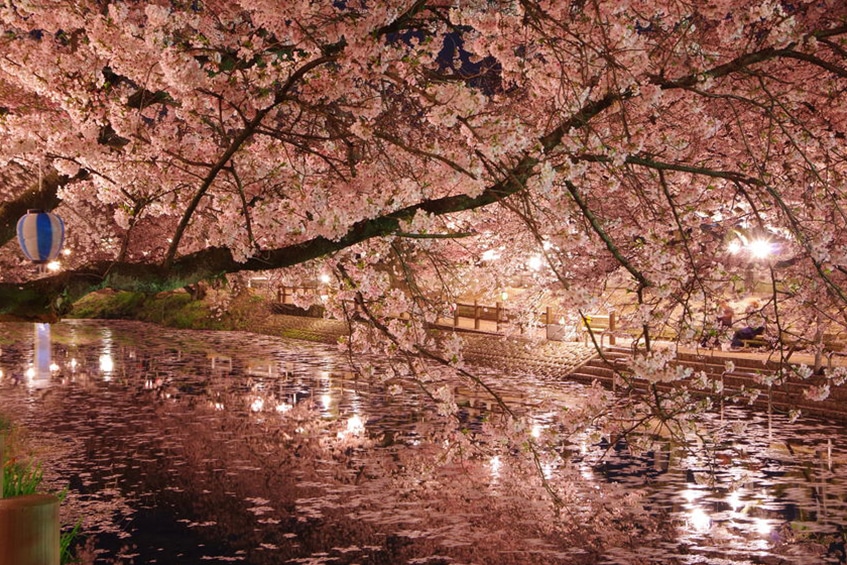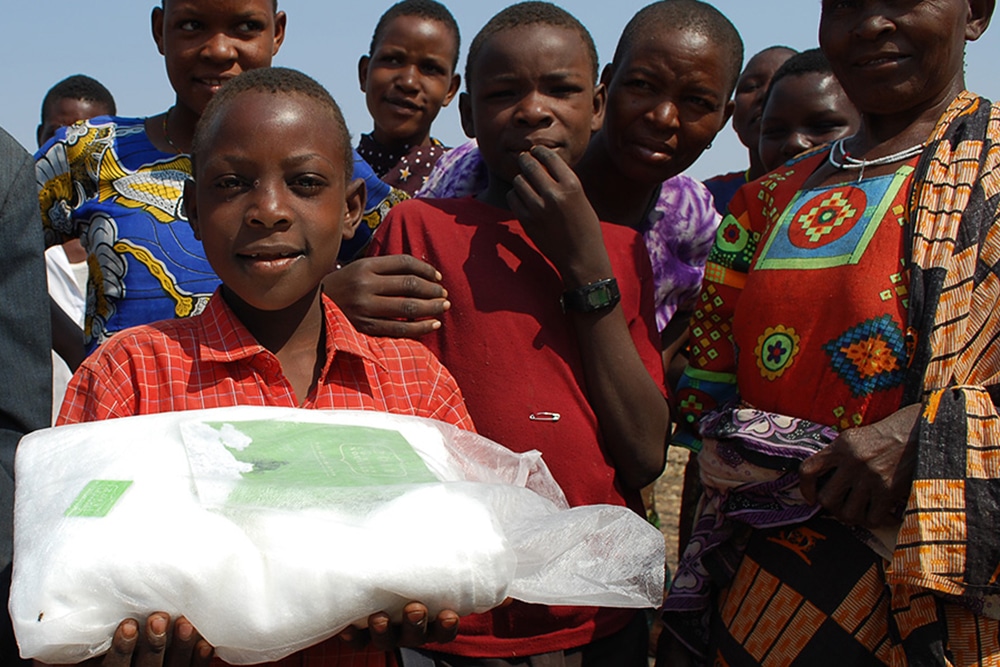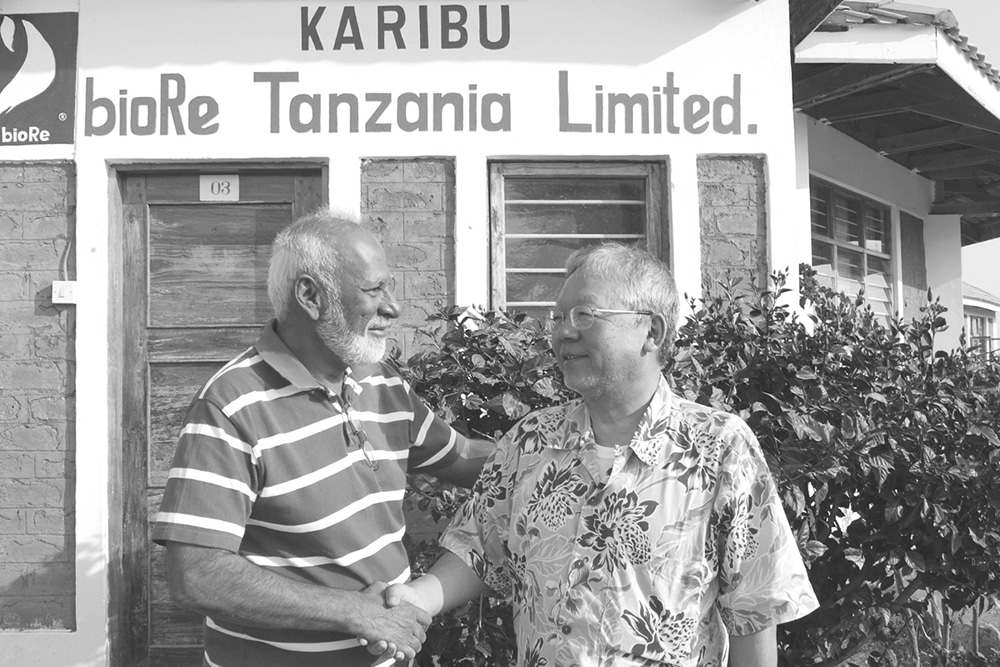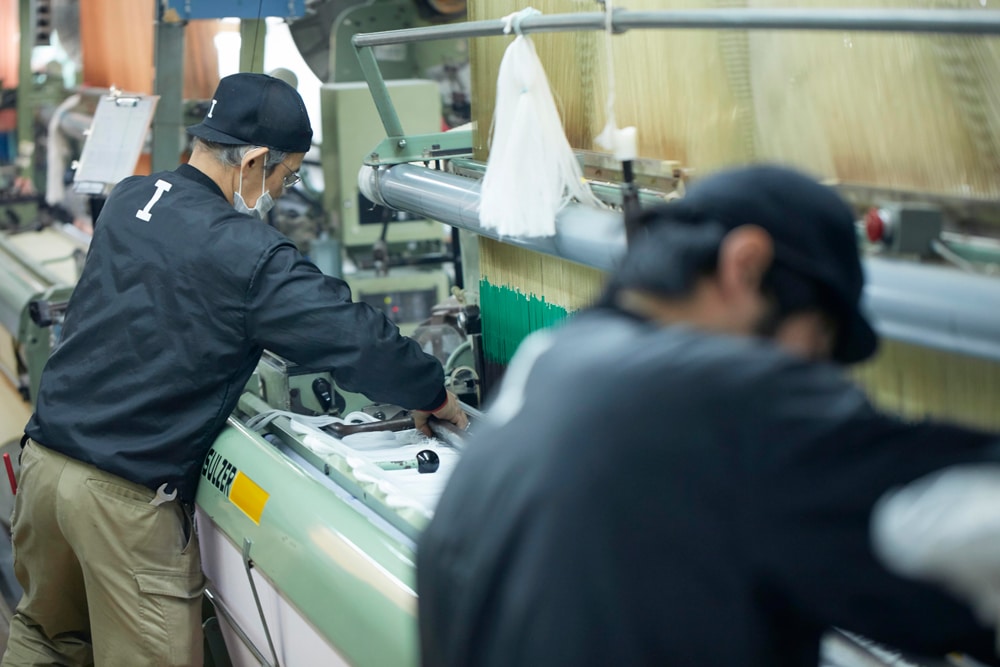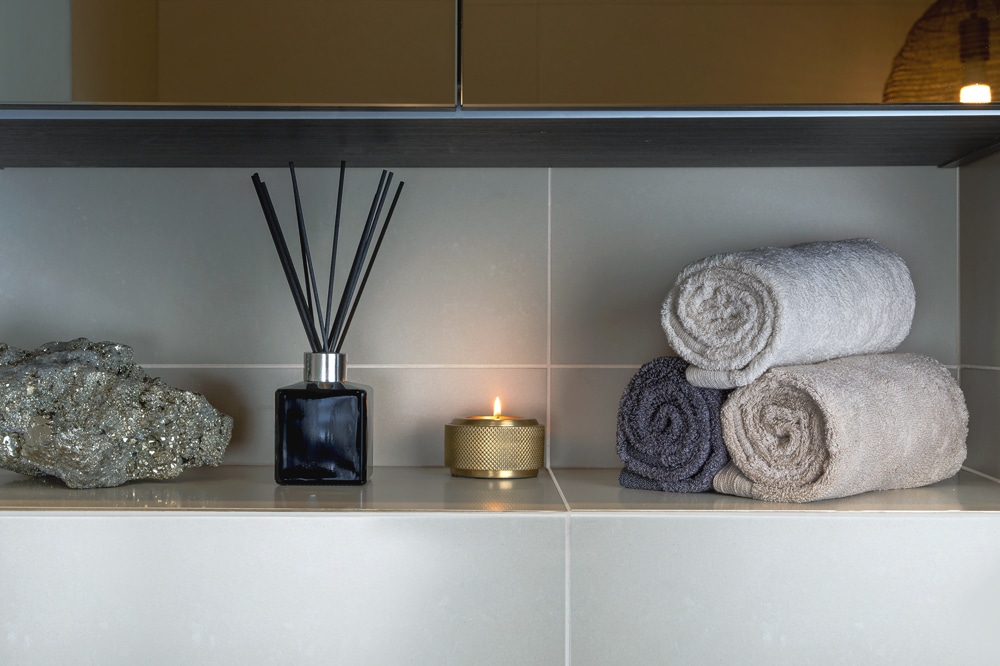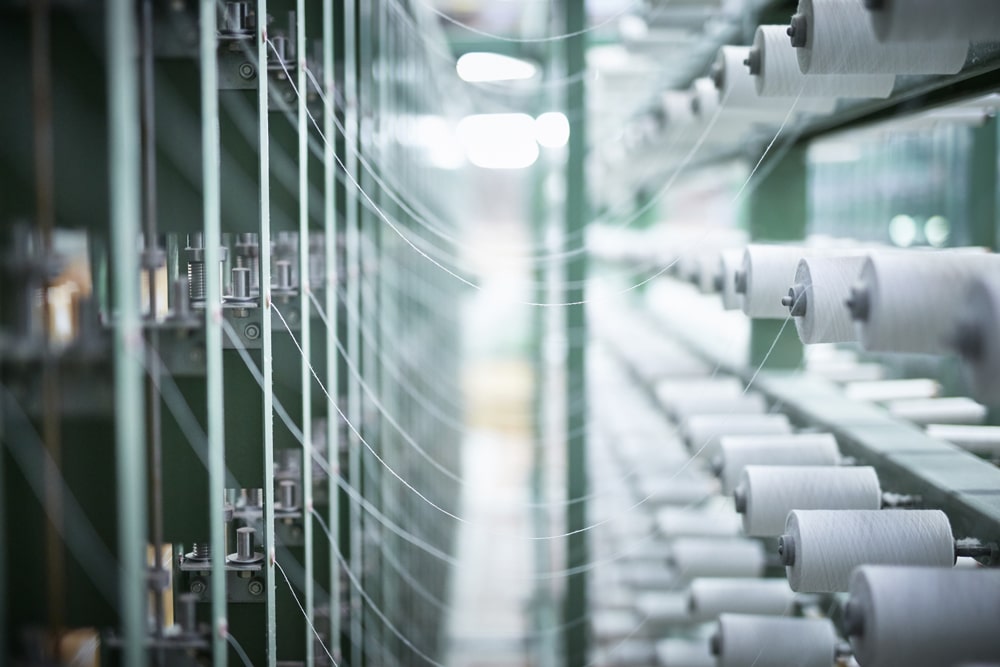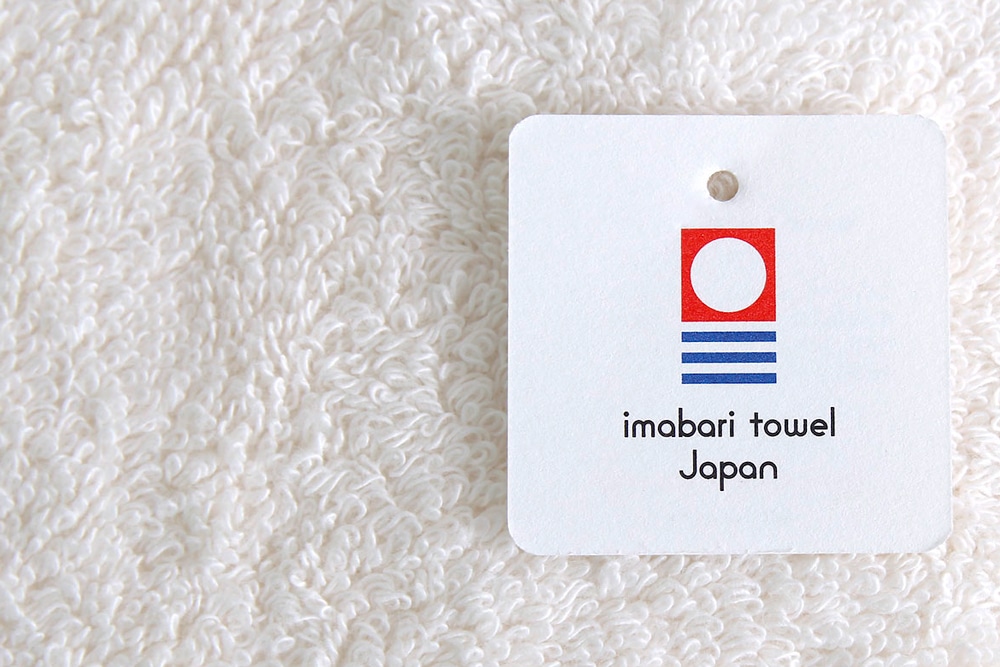In a bath culture like Japan, being a towelmaker comes with high expectations. Most are based in Imabari, a shipbuilding town on south Japan’s Skikoku island with a small population of 150,000. The central sea port, pure spring water and 100-year artisan tradition have made it a cotton industry nerve centre. Competition is fierce.
Yet, one manufacturer has captivated us from the beginning. Ikeuchi Organic, an Imabari true-blood since 1953, is more a zeitgeist than a company. Strict quality control measures and an action-based ecological philosophy uniquely places them at the forefront of organic cotton innovation.
Ikeuchi has stores in Imabari, Tokyo and Kyoto, arranged with artistry and pride. Watching awed customers pick the fruits of Ikeuchi’s many labours must be the very definition of satisfaction for Chairman Keishi Ikeuchi. But this is just the endpoint of an inspired process. Without a tour of Ikeuchi’s processes, the end customer is like a theatre latecomer catching a spectacular finale without knowing the depth and meaning of the story.
In this article, we take a close look at why Ikeuchi’s bath and baby products are the best there is.
Related: For the story behind the company, see Ikeuchi Organic: Japan’s eco-cotton visionaries
Organic Cotton: The More The Better
- Standard cotton is a destructive crop
- Banned chemicals still used
- Human & environmental impacts
The problem with regular cotton
At the nucleus of Ikeuchi Organic’s product philosophy is a pervasive global issue. Non-organic cotton agriculture poses risks to people and the environment. Labelled by some as the ‘world’s dirtiest crop’, one source estimates that non-organic cotton fields account for less than 3% of world agricultural land, yet consume a staggering 23% of all insecticides and herbicides worldwide.
Human impact
In addition to direct worker contact, heavily-used chemicals seep into soil and waterways, adversely affecting cotton workers and surrounding communities in extremely serious and under-reported ways. This includes birth defects and debilitating illness. Other consequences extend beyond physical health to monoculture (rendering the land unable to produce adequate food) and psychological and economic subjection.
Destruction of wildlife & habitat
The scattergun approach of pesticides and herbicides also affects species dependent on the targeted pests. This creates havoc for broader ecological chains, causing imbalance and destruction of habitat and wildlife. Excessive nitrate levels are another environmental issue unto itself. Forming nitrous oxide, it wields 300 times the destructive power of CO2.
GMO issues
Cotton is among the top genetically-modified crops in the world. GMO agriculture has a laundry list of problems, with questions sown across economic, health, quality, effectiveness, power, legal and ethical issues. Unnatural cotton even gets in our food supply via several byproducts.
A choice
The good news is that we have a choice, and more people are choosing the option guaranteed safe by nature: organic cotton.
But is every product labelled ‘organic cotton’ on equal standing? True sustainable and safe organic cotton products are a top-down commitment – a philosophy – not just a marketing tagline. A look at Ikeuchi Organic highlights the difference.
The World’s Best Organic COtton
- World-leading purity standards
- Organic, Non-GMO & Fair Trade
- Cotton certified safe for babies
Organic cotton certification
When you purchase true organic bath or baby products, you receive actual value for money, your body receives the comfort nature intended, the farmers receive a fair living, and you vote against destructive agriculture by taking away the demand for it.
Yield figures indicate that organic cotton accounts for less than 1% of world cotton production, leaving over 99% of world cotton production under safety, quality and ethical clouds.
For Ikeuchi’s cotton to attain organic certification, the crop and harvesting process must satisfy strict agricultural, production and ethical requirements:
1
Chemical Free
The cotton is organically grown in fields certified pesticide-free and herbicide-free for a minimum of 3 years, ensuring no chemicals remain in the soil.
2
Non-GMO
The cotton is not genetically modified. GMO cotton is unnaturally manipulated for the economic benefit of the controlling companies and is strictly excluded.
3
Fair Trade
The cotton is sourced via Fair Trade practices, ensuring cotton workers operate in a safe environment for a proper living wage, and the cotton receives a fair price.
Strict cotton testing
It’s not about ticking boxes. Ikeuchi approach product certification like an adrenaline-fuelled extreme sport, taking their products beyond already-strict global organic cotton standards.
Ikeuchi exclusively uses strict GOTS-certified organic cotton cultivated by the bioRe® Project of REMEI Switzerland. Acronyms aside, it means that the ethically-sourced cotton flower is pure, springing from certified natural conditions. BioRe inspectors test cotton flowers, buds and stems via chemical methods to confirm freedom from agricultural chemicals and GMO origins.
If one sample fails the GMO test, the whole crop is sold as regular cotton despite not using pesticides or herbicides. GOTS assessors are uncompromisingly ‘by the book’, taking their job to protect the exceptional status of organic cotton worldwide very seriously.
Certified safe for babies
The Nissenken Quality Evaluation Center tests Ikeuchi’s finished products, where they achieve Oeko-Tex 100 Standard Class 1 certification, the highest possible, designed to certify freedom from all harmful substances. This standard exceeds that set by laws and regulations, and make Ikeuchi cotton creations the only products certified safe for a baby to put in their mouth. Cotton should be, after all, a pure vegetable fibre.
Ikeuchi Organic baby products are certified:
- Free of chemical substances that can be absorbed via saliva or skin/sweat
- Free of carcinogenic dyes
- Free of heavy metals
- Free of insecticides
- Free of any questionable substances, even if unregulated.
Sustainable Innovation: Cotton + Bamboo
- Highest level of towel sustainability
- 1.7x more absorbent than cotton
- Light, thin & smart design
Maximum sustainability
Bamboo is one of the world’s most sustainable, economical and versatile resources. Traditional lumber forests take roughly 60 years to renew, whereas bamboo plantations grow in cycles of 2-3 years and can be maintained indefinitely with virtually no adverse environmental impact.
What is a bamboo towel?
The bamboo becomes a silky thread via a viscose method, producing what is known as bamboo rayon. Ikeuchi weave this into an organic cotton base with heightened elastic properties. This reinforces the strength of the towel and ensures the towel holds shape over a long, reliable life.
Bamboo vs cotton towels: Which to choose?
It’s a matter of preference. Organic cotton is for those who prefer bath towels optimised for softness, tending to be slightly thicker. For those who like thin, light and quick-drying towels, then Ikeuchi’s bamboo towels are ideal. They are durable, cool to the touch, with an almost buffed silken feel evident under certain lighting conditions. They also cost less.
High performance
While keeping debonair aesthetics, Ikeuchi design organic bamboo bath towels for high-performance. The texture of bamboo fibre exposes a greater surface area to air, making it absorb water 1.7x faster than cotton fibre. Likewise, it is faster drying than cotton. The fast absorption/drying properties are amplified by the smart herringbone pattern which extends the same concept at a design level. This is one reason why Ikeuchi bamboo towels are are great choice for sports towels.
Environmental Leadership
- Made with 100% wind energy
- Low impact dyes
- State-of-the-art water recycling
100% wind powered
Ikeuchi’s operations are powered entirely by renewable energy, making them the first company in Japan to achieve this. From the looms in their Imabari factory to their multiple store locations, everything they do is produced with 100% wind power. The purchase of Green Power Certificates makes this possible, which helps to offset the cost of expanding natural energy facilities in Japan.
Low-impact dyes
To safely achieve their signature colour palettes, Ikeuchi use dyes known as reactive dyes. These dyes are free of heavy metals and safe for the human body, including the mouth of a baby. It also means there is nothing toxic about the wastewater. The water that returns to the environment is, well, water.
State-of-the-art water recycling
The cotton dyeing process can take several hours and involves high water use, making effective water recycling critical to overall sustainability. Their co-owned dyeing factory is located in Saijo, a 50-minute drive south of their main factory. This facility is specifically designed to use minimal water via water recycling, and return clean wastewater. Incredibly, the recycled wastewater from their facility is clearer than the seawater itself.
The virgin springs of Saijo
Saijo – also in Ehime Precfecture on the Seto Inland Sea – is known as the ‘Water Capital Of Japan’, famous for its breathtaking natural springs. This extremely pure virgin water source is known as Ishizuchiyama, or ‘groundwater’, and is used responsibly by Ikeuchi for their dyeing process.
Last Line Of Defence
- Farmer price guarantees
- Building community water wells
- Safety, training & livelihoods
Hanging by a thread
While many talk about inequality, few put everything on the line to do something constructive about it. REMEI of Switzerland and Ikeuchi Organic are part of the few.
Their organic cotton is grown in Tanzania. Without specialised structures in place operating honourably, local producers would face the same exploitation risks prevalent in standard cotton trade. The reality is, only small teams of committed people stand in the way of this.
It starts with fair trade
Ikeuchi’s organic cotton is sourced through the REMEI Switzerland bioRe® project, who buy from the local producers. Interactions are happy and cooperative, and it starts with trading fairly.
REMEI offer farmers a fair price guarantee and a minimum buy period, often 5 years. Without this, farmers would be in a perpetually weak bargaining position. Environmental events such as drought and waves of pests can easily destroy harvests, making supply no guarantee. With REMEI, the producers’ good times are financially maximised, and there is support during the bad times, with a guaranteed light at the end of the tunnel.
The mission of REMEI’s bioRe®
REMEI protects the health, safety and livelihoods of cotton producers who may otherwise be vulnerable to physical or economic exploitation. Their bioRe® project:
- Ensures a safe, non-toxic work environment by prohibiting the use of chemical insecticides and herbicides, which are known to cause serious health conditions and birth defects;
- Ensures the organic cotton is purchased for a fair market price;
- Ensures workers receive a fair living wage with no exploitative practices or conditions;
- Protects communities from the adverse environmental impact of regular cotton agriculture (e.g. contaminant-free water supply).
- Provides agricultural and economic training to foster independence and expand the skillset of local economies. Crop rotation, natural plant pest repellants, farming techniques, management principles – everything needed to be successful.
Sleepwalking for water
We take it for granted: just go to the kitchen and get a glass of water. For farming communities in Tanzania, it’s not like that.
Small streams snake around the villages, but regular droughts and the torrid dry season parch them completely. When this happens, some villagers travel miles to bring back a few gallons of water for their household. They mount plastic containers to an ox cart, and begin their journey in the middle of the night in order to get back by day in time for field work. Sleep is a luxury when the water is low.
Wells require money to build, and money to maintain. A productive local economy is therefore essential to basic living needs. But this is difficult without having the basics in the first place – like water.
20 wells in 20 years
Ikeuchi Organic are doing what they can for organic cotton producers in Tanzania. They are committed to help resolve the water issue, by donating a portion of sale proceeds to community infrastructure. Currently, Ikeuchi are halfway to meeting their goal of installing 20 wells within 20 years. The water well projects continue to make a huge difference to lives half a world away from Japan.
The power of choice
In a free market, if something destructive, insidious or unfair exists, it is because there’s a demand for it. Somewhere along the line, it’s funded by purchases or attention. Organisations like REMEI really are the last line of defence for farming communities in developing countries. REMEI stands in a place that would otherwise be occupied by a less principled agent of the standard international cotton trade.
It’s a simple equation. The farmers depend on REMEI. But REMEI can only buy from the farmers if manufacturers like Ikeuchi Organic purchase through them. And Ikeuchi can only place orders to REMEI if end consumers are buying their products.
Supporting Ikeuchi Organic products directly supports the farming communities in Tanzania.
Craft of the Past, Technology of the Future
- Made with 100% wind energy
- Low impact dyes
- State-of-the-art water recycling
World leaders
Ikeuchi Organic were the first towel producer in Japan to use CAD software, and they have maintained a technological edge over the decades, from design and weaving, to dyeing and source tracing. Ikeuchi strives for a level of comfort that is impossible to achieve with a standard a towel-making operation. Read our profile of Ikeuchi Organic, and you’ll get a sense of how often they were first to apply new technological concepts.
Masters of their craft
To create towels with specific textile characteristics, Ikeuchi invest significantly in the manufacturing process. Their skills are always adapting to this changing technology.
The S60 bath towel range, for example, is one of Ikeuchi’s most impressive technical achievements. It has an extremely high yarn count of 60, which is yarn so fine that it is used to make dress shirts. Working with such delicate thread, even with the best technology, requires textile mastery.
The S60 is made from three of these super-fine threads. The threads are meticulously yarn-dyed, meaning each individual thread is dyed its own colour, rather than just dipping the whole finished towel in one dye. The three threads are then combined to make the ultra-soft yarn from which the S60 is woven.
The ‘5-second rule’ is real
Ikeuchi towels must sink in water within 5 seconds when placed on the surface. That’s the absorbency challenge cast down as if by an ancient philosopher. The sage-like figure is actually the Imabari Towel Brand, an association of the best towel manufacturers in the region. The self-imposed standards exceed those of the Japan Towel Inspection Association. Consistently weaving threads for optimal surface area exposure is made possible through knowledge and precision technology.
Edible towels?
Ikeuchi wants their products to be so pure and ecologically harmonious that one of their objectives is to produce edible towels by 2073, their 120th anniversary. This is some sort of zen-level goal setting. But who would doubt them?
Ikeuchi Organic creates unparalleled organic bath and baby products the right way, making them a perfect collaborative fit for Atlas & Eden.
Ikeuchi Organic In Australia
We love Ikeuchi products so much that we couldn’t resist limited release bath and baby products to complement our tea range. Their stunning babywear is featured in our baby gift boxes, and we were quick to put our tag on their best bath towels products.
Shop BabyShop Baby
